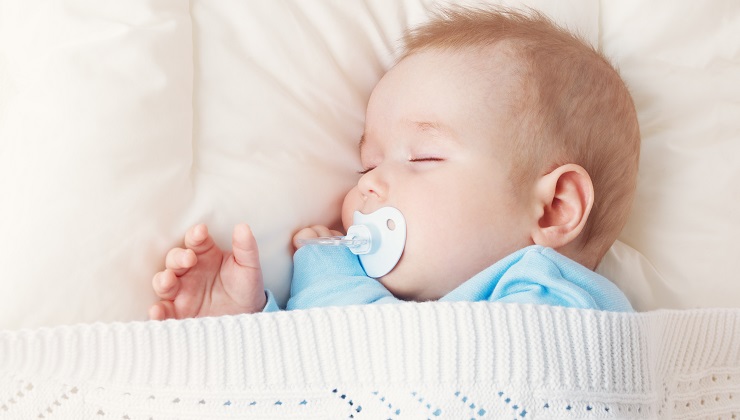
How to Cope with Baby’s Changing Sleep Pattern
There are many reasons a baby’s sleep pattern can change. From changing of the clocks, through to just growing up, there are several factors that can affect the way your baby will sleep. Establishing a routine for your baby can make life much easier for the both of you, and many baby and child specialists agree that it plays an important part in their development.
You may hit some hurdles and baby may not drift straight off to sleep and this can be frustrating, but it’s completely normal. Follow our guide on how to regulate and keep your babies’ sleep pattern.
Clocks change
The clocks going forward or back can make it difficult to keep your baby’s sleep pattern consistent. Some babies don’t react to the changing clocks, but don’t be surprised if yours does. Babies are like people, each one is different.
In the week leading up to the clocks changing, try putting your baby down to sleep 10 minutes earlier or later in the days up to the change. It’s not a sure-fire way to make sure your baby gets up on time, but it’ll make it easier at the very least!
Teething and illness
If your baby has a cold or is teething, their sleep routine may change a bit. If their sleep is disrupted due to a blocked nose or painful gums, then they won’t be sleeping as they normally do. Or you may find that your baby sleeps more when they’re unwell as their body tries to fight the sickness.
The best thing you can do is give your baby all the TLC you can muster, and try and keep to your baby’s regular sleep routine as possible. You may have to accept that for some days there will be a little disruption, and let your baby’s needs guide you to how to care for them.
If teething is keeping your little one up at night, then one of the best and most simple ways is to use our Baby Gums Gel (Medical device, CE 2803). This soft gel is formulated for the treatment and relief of the baby’s sensitive gums during first teething. It creates a moisturizing and protective film around the developing gums and teeth, thus relieving the pain and discomfort caused by the first teething. Apply the gel with a clean finger on baby’s gums massaging gently. Repeat as many times as needed.
Trips away from home
Going on holiday or visiting family and friends can, of course, change your baby’s normal sleep pattern. Having to wake the family up to make that early flight, reaching the hotel at midnight or long car journeys can all mess up the way your baby normal sleeps.
There are a few things you can do to minimise disruption and create some sense of the familiar:
Take a blanket your baby normally sleeps with. It will feel and smell like home despite being in strange, new surroundings.
Pack a travel blackout blind. If you’re in a country where the sun sets later or rises earlier the blind will help keep the amount of daylight baby is used to.
There will inevitably be times when you can’t keep your baby’s normal sleep pattern whilst your away from home, but don’t panic. After a few days of being back at home, your baby will settle down into their normal sleep routine in no time at all.
Growth spurts
Just before and during a growth spurt, your baby might seem sleepier than is usual. They may wake up less often during the night, sleep in longer or are taking more naps during the day. All of these can be signs that your baby is going through a growth spurt. A small study suggests that babies need more sleep during a growth spurt due to the physical energy the body uses to make these changes.
Babies during their growth spurts can sleep up to four and a half hours more than usual across one or two days. These changes in your baby’s sleep pattern can be frustrating but before long, your baby’s routine will be back to normal.
The seven essentials for a great baby sleeping routine
- Get your baby into the habit of a regular bedtime as soon as possible
- Teach your baby the difference between night and day
- Take notice of your baby’s signs they do or do not want to sleep
- From the beginning, make your baby’s routine a priority
- Don’t get frustrated with sleep changes caused by growth spurts, travel, sickness etc.
- Revise your baby’s sleep pattern to match their age
- Don’t expect perfection. Even adults don’t have a cast-iron sleep pattern
And remember…
It can take between 3-14 days to change your baby’s sleep patterns. Be prepared to take the rough with the smooth, as even the best-laid plans can change.














